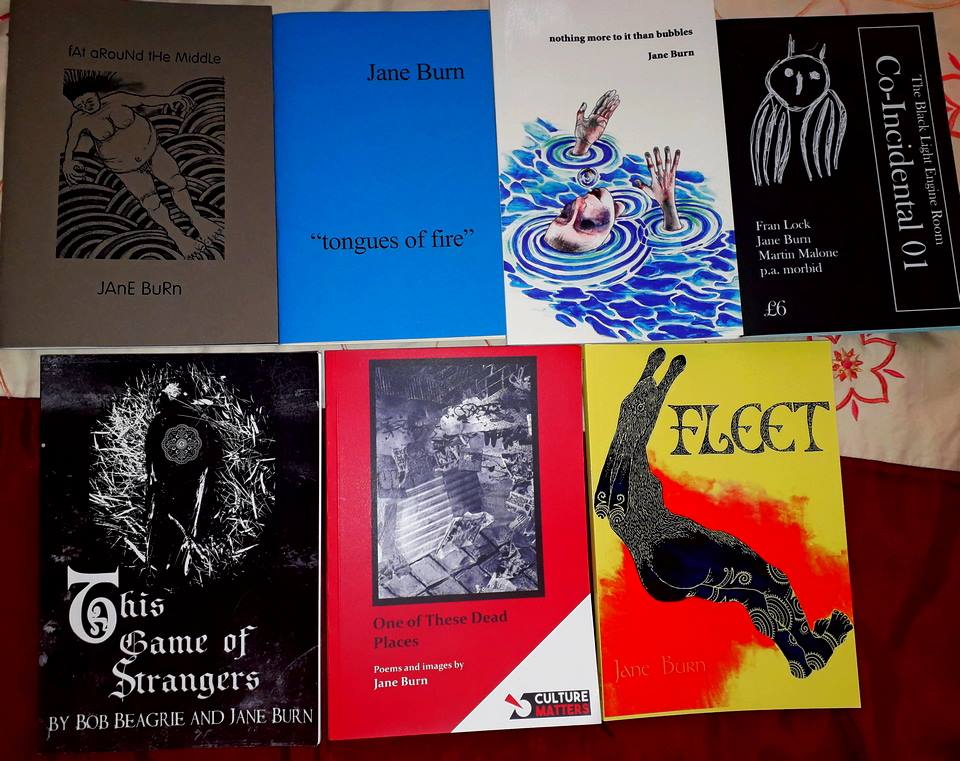
JANE BURN – POETRY AS HARD GRAFT, INSPIRATION, REACTION OR EXPERIMENT?
I interviewed poet & artist Jane Burn who won the Michael Marks Environmental Poet of the Year 2023-24 with A Thousand Miles from the Sea.
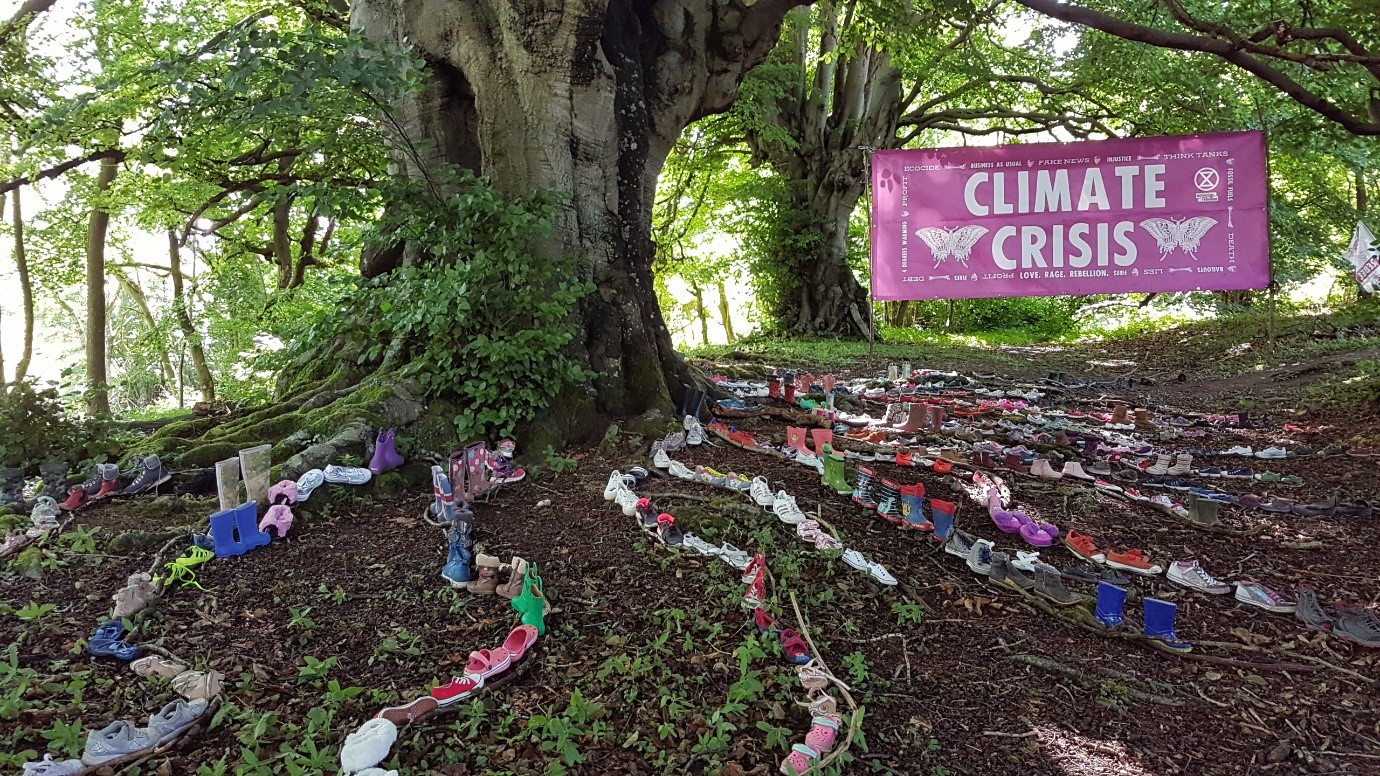
In Part Two of my interview with artist Rose Lennard, we discussed her relationship to the natural world, her involvement with Extinction Rebellion and the full range of her creative activities, including ephemeral art, poetry, dancing, gardening and featuring on a podcast.
Leslie: Where does the science come in and where does faith inspire you in relation to nature?
Rose: I’ve mentioned some of the science in Part One. In addition, we are discovering so much about the amazing life of soil and woodlands, including substances called phytoncides, given off by trees which improve our health, immune response and wellbeing when we breathe them in, and Mycobacterium vaccae, a bacterium in soil which acts as an antidepressant. Knowing this, why wouldn’t we all want to get down on our knees and breathe in the scents of the forest?!
I’m not a religious person, but I find communing with nature to be a wonderful way to tap into the cycle of the seasons, and I find the photos I take of my installations really celebrate whatever is unique to that time of year. It’s deeply nourishing, and I always feel better for a walk and nature art doodle along the way.
Leslie: What have been the most satisfying things you’ve done as a writer and environmental activist?
Rose: I feel as though my journey as a poet is in its early days, but it is something that I am finding increasingly important and rewarding. My poems often come to me on walks, or sometimes in the middle of the night, and I think the former helps to access the rhythm and progression of poetry and storytelling, while the latter allows communication with the less conscious, filtered part of the brain. The more I explore writing, the more I appreciate other poets and learn from them, frequently awed by the impact of a perfectly crafted poem stripped down to the bone. I return to my own writing ready to challenge and stretch myself in search of truth-telling which has the power to speak to and move others. Writing poetry is a solitary activity, so it’s been good to discover networks of other poets and I’m particularly enjoying being part of a group of women poets working with Angela France, meeting monthly for constructive criticism of each other’s work.
One of the most important aspects of my involvement with Extinction Rebellion, has been supporting and being supported by the Cheltenham XR community, and it’s interesting that XR has just launched a new strategy, declaring that we will now ‘prioritise attendance over arrest, and relationships over roadblocks’. Building community can be radical, and so important for these times when society pushes us into the separation of neo-liberalism and each one for themselves. Personally, one of my most memorable experiences was last Summer, when our group was invited to have a presence at the Cheltenham Science festival, and over the course of 6 full-on days we had the opportunity to reach out to thousands of schoolkids and adults, to talk about climate issues. We developed various activities including a map-based climate justice game, and many people commented how good it was to talk to us and realise we were not all disruptive anarchists, but concerned citizens who they could relate to.
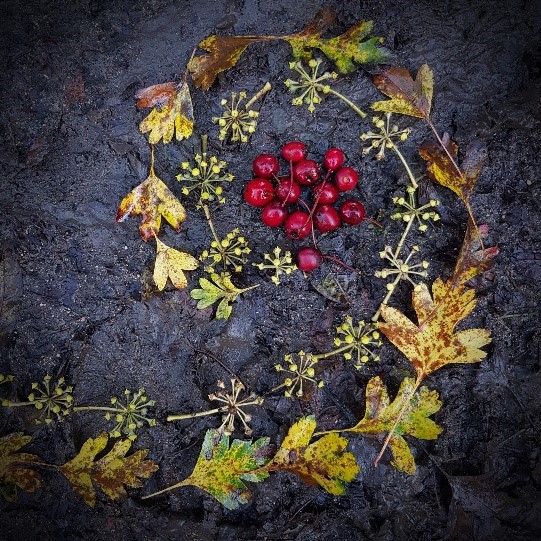
Leslie: Tell us the story of your work with Felicity Parnham, and Michael Childs and what you’ve learned from doing it about yourself and working expressively?
Rosa: I’ve known Felicity for many years now, and am hugely impressed by her commitment to sustainability issues at the parish level, so I was delighted to be involved when she invited me to record a Losing Our Cool podcast, which is put together by Michael Childs. We agreed to try something new for them, which was to record out of doors in the woodland, where Felicity and I made some ephemeral art. It’s always very different for me being with others while I do this, but so rewarding to see how much Felicity got from the activity. I’ve also offered nature art activities at a friend’s forest school and at our parish council fair, and it’s magical to see how children respond to this. I don’t feel I’m a natural teacher, but I would like to explore how to share this more with others, as I think it offers something that can be really valuable in this day and age: mindful connection to nature, low stress creativity, zero carbon, zero cost and zero waste! I’m also very aware of a tension between those who are working within communities to bring about change at an individual level, and those who choose to take their activism a step further. The challenge I see is how to help people to understand that, while individual action is necessary and good, it isn’t enough, and may even be dangerous in that incrementalism can distract from the bigger picture (George Monbiot writes about this). We all need hope, otherwise we wouldn’t be able to get up in the morning and carry on our lives, but we also need to understand the full seriousness of the problem – XR’s first demand is Tell the Truth. How do we balance these needs, which often feel incompatible? I guess for me, I’m able to find meaning in my life, to counterbalance the despair I could otherwise feel, through my creative activities and my activist community.
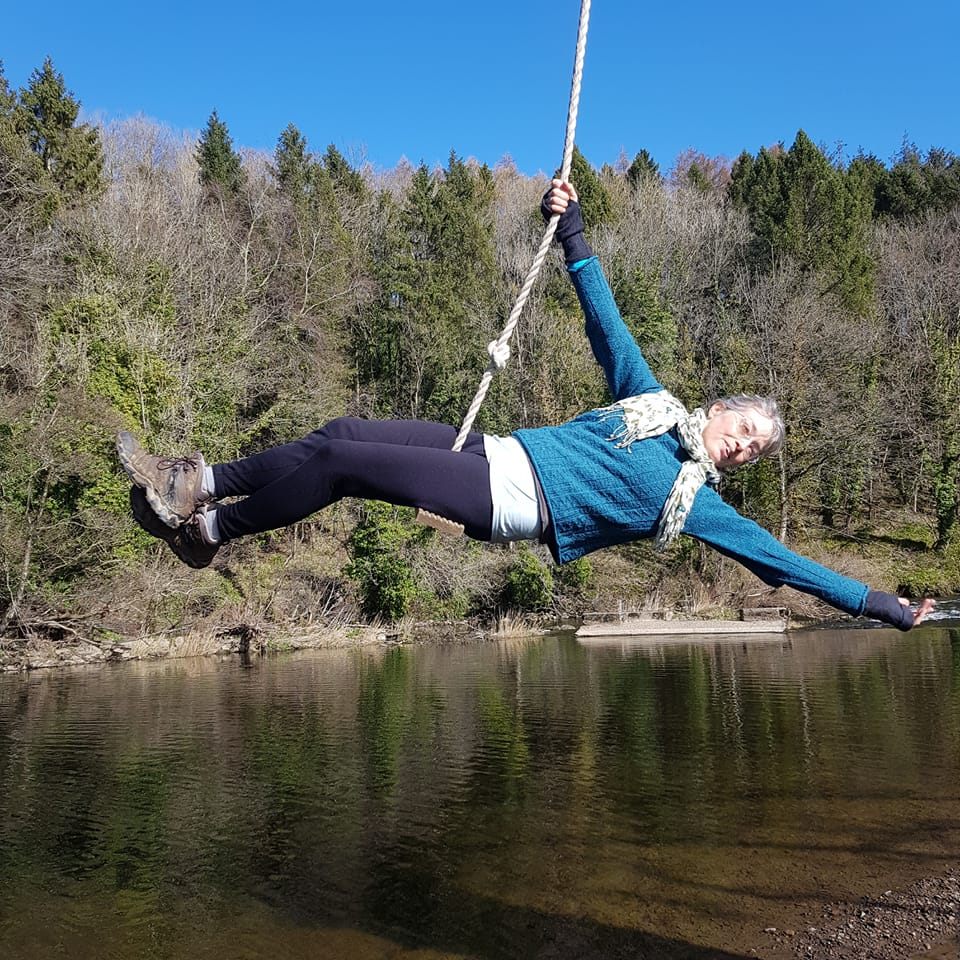
Leslie: Can you describe how you have worked creatively as a dancer and lifelong gardener? What qualities transfer across between the different creative fields you’ve worked?
Rose: The dancing I have done over recent years is Five Rhythms dance and this is like a moving meditation. It can be a way to express emotions, and a beautiful way to connect with others, as well as practicing having clear boundaries. Being in touch with my body helps me to understand the way that emotion can manifest in our physical selves as tension, holding on, or on the other hand, release and flow. My nature art is also a great way to be present in the body: using all the senses whether the feel of a smooth piece of wood, the smell of the earth, the sound that small stones make in your hand, the visual appreciation of colour, light, texture, shape – even taste on occasion! And I think all good poetry is very embodied, and has to be, to make that visceral, gut impact. So these activities are all closely linked.
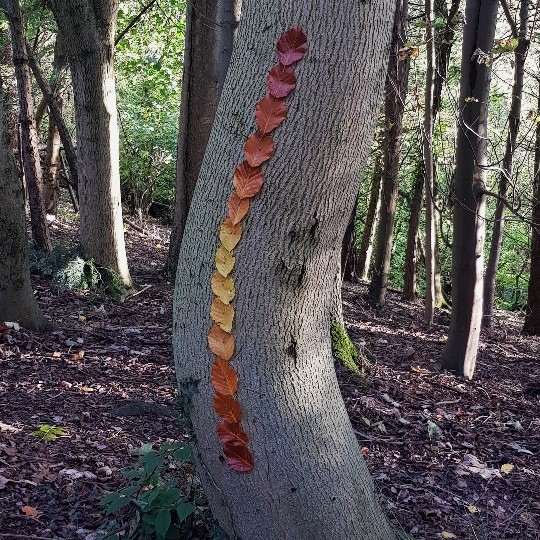
My working life for the last few decades has been as a landscape architect and garden designer, running my own garden design business. However I have recently paused this to give myself a chance to reappraise. I had started to feel increasingly uncomfortable with the mismatch between my values – wishing to live a low carbon lifestyle, respecting and caring for nature – with the aspirations of many of my clients, and felt compromised. I’m now enjoying living cheaply and understanding how much less we actually need than we are led to believe within this society!
As a gardener, I’d love to say that I love nothing more than growing my own food, but in truth it’s more ambivalent than that! On the one hand, I can’t imagine not sowing seeds every Spring and having a greenhouse full of delicious tomatoes in the summer, but on the other hand, unless you share a garden and allotment with others, it can be a real tie. Where my garden is pure pleasure is in seeing how it benefits wildlife – 8 years ago when I moved in, I christened it The Garden With No Wildlife, but every year as the garden matures, I see it supporting more life and diversity. This is where I see my working life going in the future – advising others on making their own plot, however small, more healthy and vibrant. Sometimes it’s as simple as learning to let go a little.
Next week I interview author Sue Hampton about her 42nd title, Rebelling Like There’s No Tomorrow,
ABOUT LESLIE TATE’S BOOKS:

I interviewed poet & artist Jane Burn who won the Michael Marks Environmental Poet of the Year 2023-24 with A Thousand Miles from the Sea.
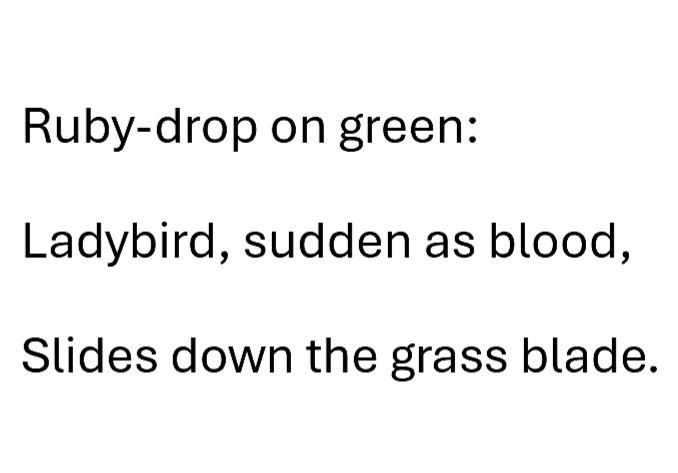
I interviewed ex-broadcaster and poet Polly Oliver about oral and visual poetry, her compositional methods, and learning the Welsh language. Polly says, “I absolutely love
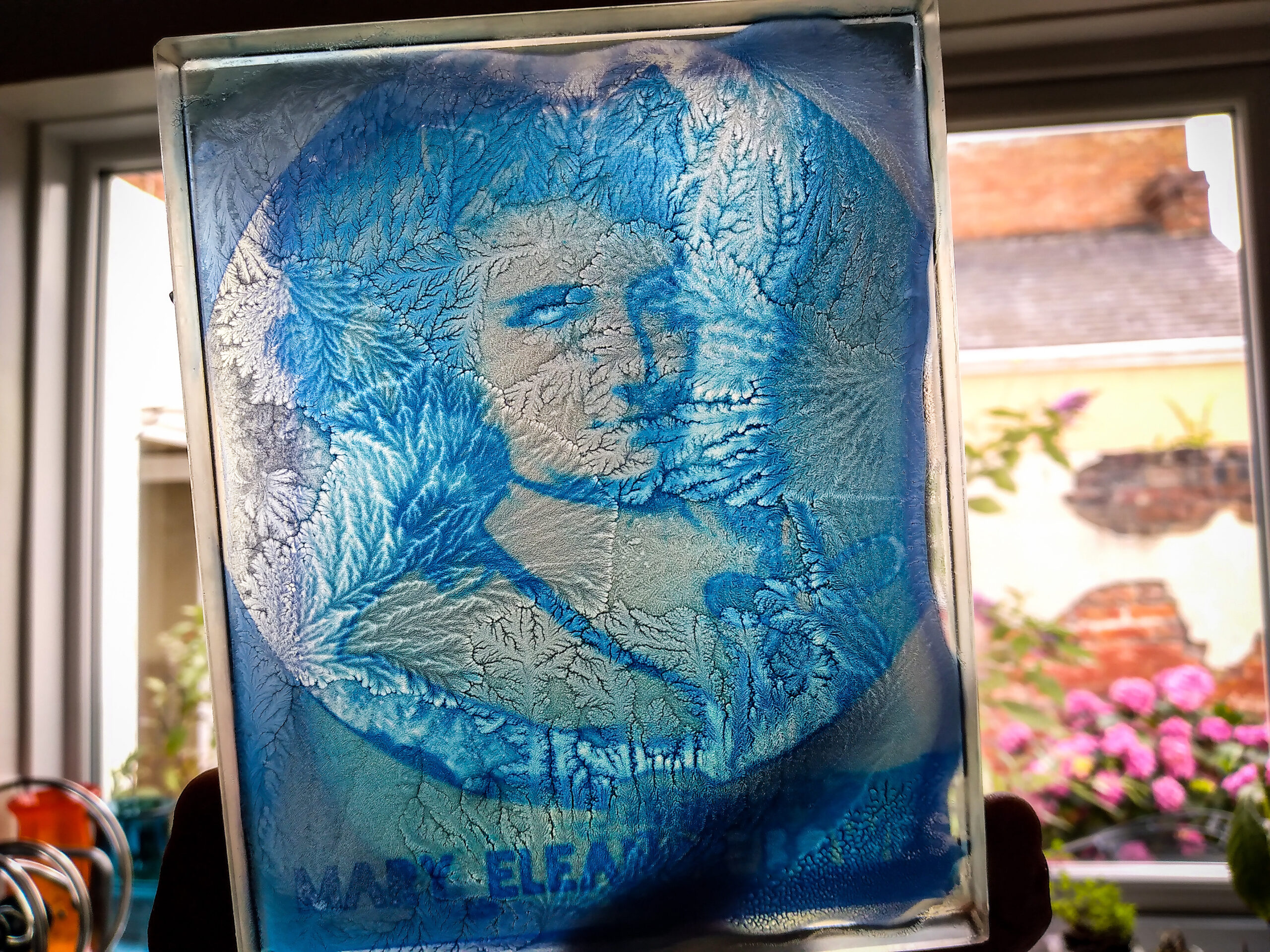
I interviewed Jo Howell who says about herself: “I’ve been a professional photographic artist since I left Uni in 2009. I am a cyanotype specialist.
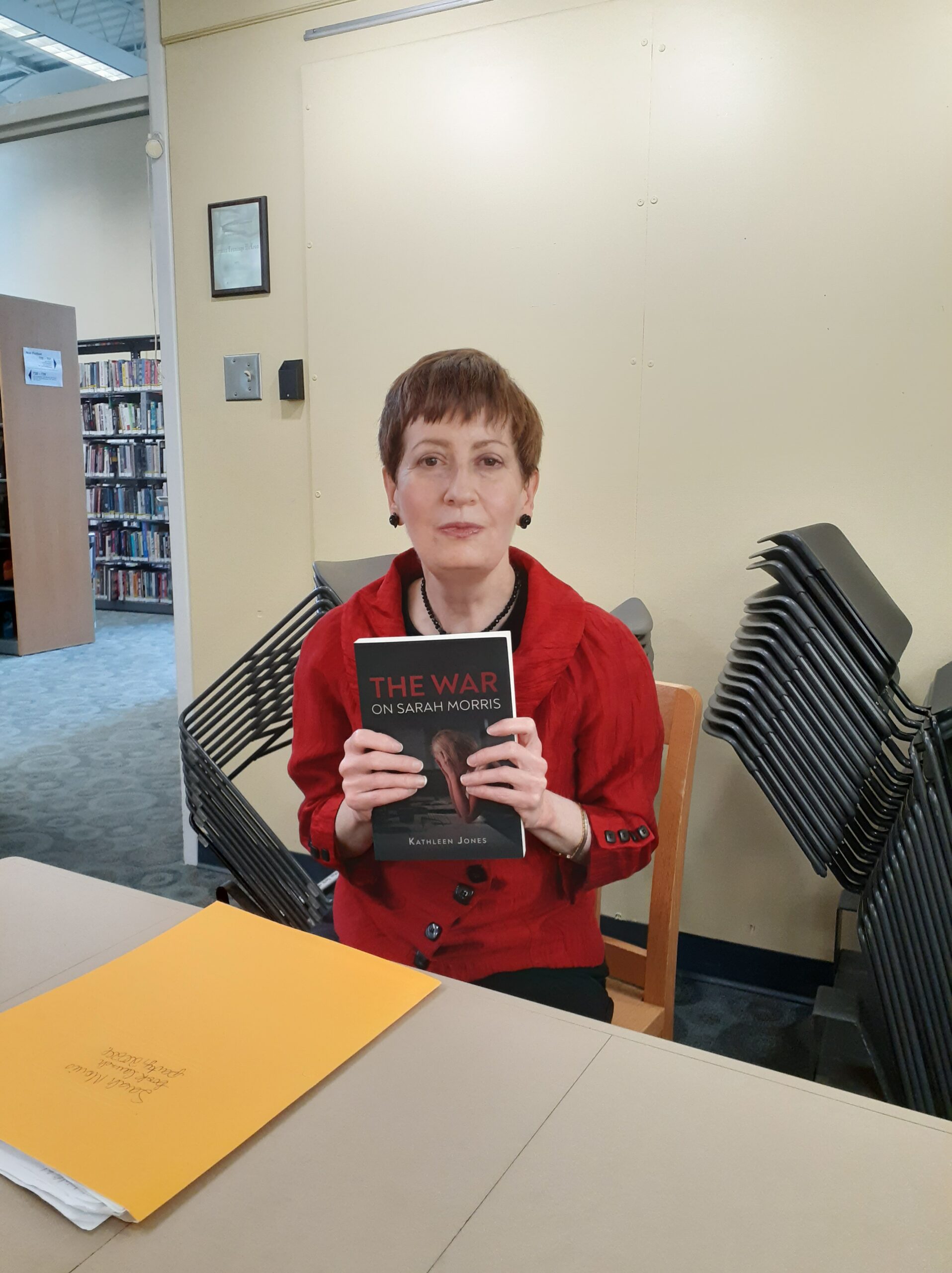
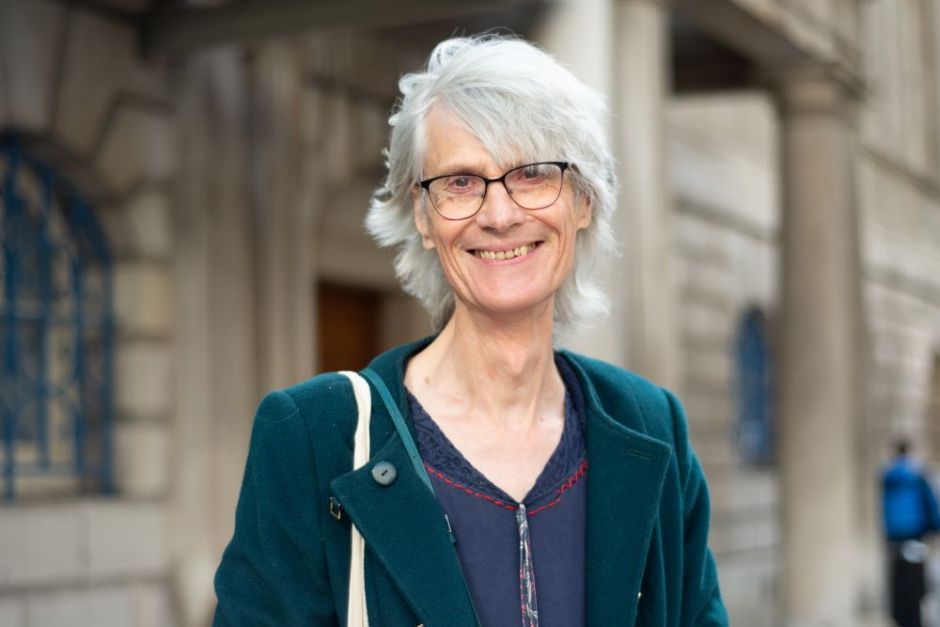
Poet Tracey Rhys, writer of Teaching a Bird to Sing and winner of the Poetry Archive’s video competition reviews Ways To Be Equally Human. Tracey,
| Cookie | Duration | Description |
|---|---|---|
| cookielawinfo-checkbox-analytics | 11 months | This cookie is set by GDPR Cookie Consent plugin. The cookie is used to store the user consent for the cookies in the category "Analytics". |
| cookielawinfo-checkbox-functional | 11 months | The cookie is set by GDPR cookie consent to record the user consent for the cookies in the category "Functional". |
| cookielawinfo-checkbox-necessary | 11 months | This cookie is set by GDPR Cookie Consent plugin. The cookies is used to store the user consent for the cookies in the category "Necessary". |
| cookielawinfo-checkbox-others | 11 months | This cookie is set by GDPR Cookie Consent plugin. The cookie is used to store the user consent for the cookies in the category "Other. |
| cookielawinfo-checkbox-performance | 11 months | This cookie is set by GDPR Cookie Consent plugin. The cookie is used to store the user consent for the cookies in the category "Performance". |
| viewed_cookie_policy | 11 months | The cookie is set by the GDPR Cookie Consent plugin and is used to store whether or not user has consented to the use of cookies. It does not store any personal data. |